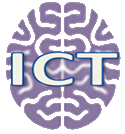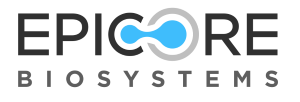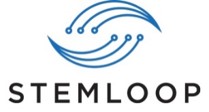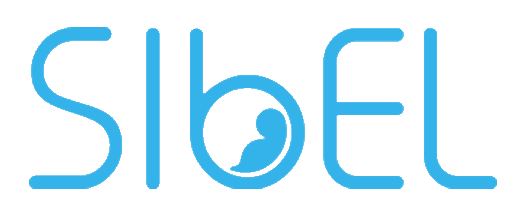COVID-19 Invention Pipeline
Northwestern's entrepreneurs are vigorously responding to the COVID-19 pandemic with their expertise, resources, and energy. The inventions and startups below are at different stages of development but share the same passion to solve this global challenge.
To facilitate and expedite needed access to COVID-19 technologies, Northwestern offers non-exclusive royalty-free Ready to Sign Licenses for select design technologies. For more information on Ready to Sign Licensing, contact INVO.
Selections generally fall under the following categories:
Northwestern Technologies and Faculty Startups
Therapeutics
Angiotensin TherapeuticsDaniel Batlle (Feinberg) Potential biologic therapeutic, novel ACE2 (angiotensin-converting enzyme 2) for nephropathy, cardiac disease, and viral disease. |
SwiftScale Biologics
|
ImmunoChem Therapeutics
|
Diagnostics
Epicore Biosystems
|
StemLoop
|
EnMed MicroAnalytics |
Hospital Optimization/Logistics
Needed ResourcesKristian Hammond (McCormick) AI platform, ERx, that connects the supply needs of hospitals with the supply chain both quickly and directly *Currently partnered with Rheaply to help make connections with hospital supply needs more efficiently. |
Stochastic Optimization TechnologiesSanjay Mehrotra (McCormick) Predictive analytics to forecast healthcare staffing demand and create a more accurate and cost effective staff schedule |
Telemedicine/Remote Monitoring
Sibel
|
Sonica
|
Adaptive HealthDavid Mohr (Feinberg) Mobile technology for mental health (depression and anxiety). |
MORE REMOTE MONITORING OPPORTUNITIES
Manufacturing
Azul 3D
|
Dimension Inx
|
News Highlights of Northwestern Innovators
- A team of Northwestern scientists including Thomas McDade (Weinberg), Nanette Benbow (Feinberg), Alexis Demonbreun (Feinberg), Richard D'Aquila (Feinberg), Elizabeth McNally (Feinberg), and Brian Mustanski (Feinberg) received an NSF RAPID grant to better understand the social inequities with COVID using their minimally invasive approach to community-based serological testing. Read the Story
- Prof. Josiah Hester (McCormick), Oliver Cossairt (McCormick)and Nabil Alshurafa (Feinberg) are co-leading a team of NU researchers to develop integrate tiny, lightweight, battery-free devices that can be integrated into face masks for use in the hospital or home through NSF RAPID grant funding. Read the Story
- Prof. John Rogers (McCormick) received NSF RAPID grant funding to continue developing a novel wearable device and set of algorithms specifically tailored to catch early signs and monitor progression of COVID-19. Read the Story
- Prof. Mark Hersam (McCormick) received RAPID grant funding from the NSF to develop a new elastic material that could enable N95 medical face masks to be disinfected and reused dozens of times. Read the Story
- Prof. Omar Farha (Weinberg) received NSF RAPID grand funding to develop a chemically modified face mask that can deactivate viruses, including the novel coronavirus that causes COVID-19. Read the Story
- Prof. John Rogers (McCormick) is leading a Northwestern and Ability Lab team to develop a device that monitors and tracks early key symptoms of COVID-19 remotely. Exploring use of the device for the COVID-19 response is supported by the Biomedical Advanced Research and Development Authority (BARDA), part of the Office of the Assistant Secretary for Preparedness and Response at the U.S. Department of Health and Human Services. Read the Story
- A Northwestern team lead by Prof. Matthew Grayson (McCormick) designed a new low-cost and efficiently fabricated alternate nasal swab for COVID-19 and other viral testing. The technology is available by a non-exclusive royalty-free ready to sign license. Read the Story
- Prof. Julius Lucks (McCormick) and Prof. Michael Jewett (McCormick) received rapid response research (RAPID) grant from the National Science Foundation (NSF) to develop an easy-to-use, quick-screen technology that can test for infectious diseases, including COVID-19, in the human body or within the environment. Read the Story
- Prof. Michael Jewett (McCormick) and collaborators at ShanghaiTech University have rapidly optimized the production of a promising COVID-19 therapeutic called valinomysin in a cell-free system. Read the Story
- Prof. Samuel Stupp (McCormick) has teamed with MIT researchers to develop new nanostructured therapy. Stupp is designing carrier nanostructures to hold antiviral peptides that were discovered at MIT to specifically and strongly bind to the coronavirus' spike protein. Read the Story
- Prof. Sanjay Mehrotra (McCormick) has developed a computational model to help U.S. states estimate needs for ventilators and other resources for improved allocation and sharing based on various demand scenarios. Read the Story
- Prof. Michael Jewett (McCormick) and researchers at Cornell University, through their startup SwiftScale Biologics, has developed a cell-free platform that will enable the development of new anti-viral therapeutics over ten times faster than currently possible. Read the Story
- Prof. Kristian Hammond (McCormick) spearheaded ERx, the Emergency Resource Exchange, a central hub that quickly connects Illinois healthcare providers with supplies. Read the Story
- Prof. Craig Garfield (Feinberg) has developed a smart phone app that enables parents to visit their infant in the NICU during the COVID-19 pandemic. Read the Story
- Prof. Chad Mirkin (Weinberg) and his team at Azul3D are utilizing their novel High Area Rapid 3D Printers (HARP) to manufacture healthcare parts for face shields, goggles and ventilators. Read the Story
- Prof. Jiaxing Huang (McCormick) received a RAPID grant from the NSF, allowing a few students to design a drop-in solution that works generically with various types of masks to provide an additional function of deactivating viruses. The mask would help reduce the level of viruses in the droplets exhaled by infected wearers and better protect healthcare workers or others around them. Read the Story
- Prof. Karla Satchell (Feinberg) is the director of Center for Structural Genomics of Infectious Diseases (CSGID), an international consortium of scientists investigating the structure of the virus to aid drug development. CSGID has identified a new drug target for COVID-19 and has sent the protein to Purdue University, the CSGID Drug Discovery site, to be screened for novel inhibitors. Read the Story
COVID-19 Funding Opportunities for Northwestern Innovators
- COVID-19 Funding Repository (hosted by NUCATS)
- N.XT Fund for Startups based on Northwestern Technology







